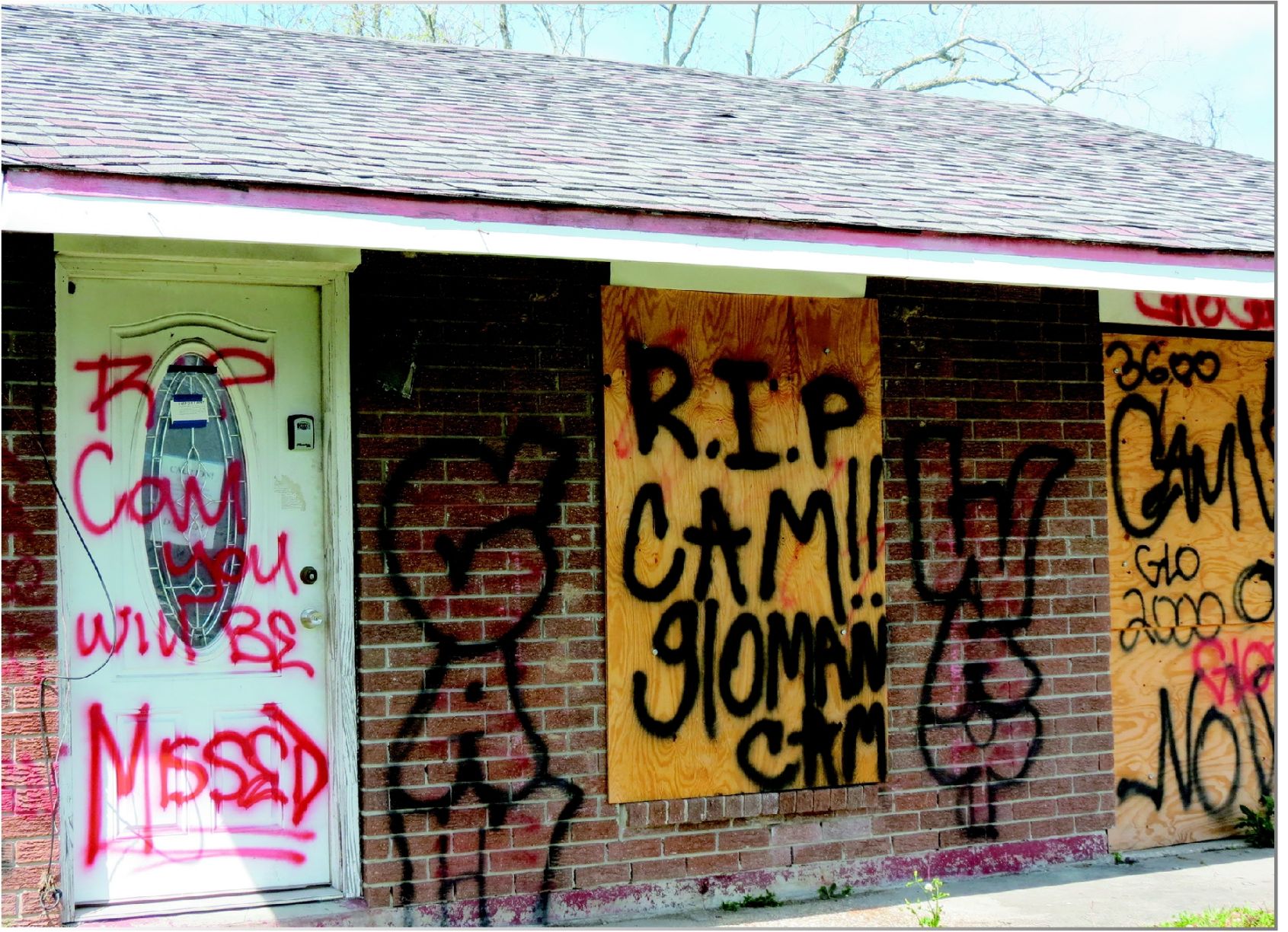
Adams brothers, Zane Marks, headline upcoming fights
March 10, 2015
Village East case moves ahead
March 11, 2015NAACP: Terrebonne must open doors to black voters in judge election
Dear Editor,
During a visit to a popular Terrebonne Parish restaurant, I saw a Jim Crow-era advertisement with racist depictions of black people.
On my way out, and without ordering, I asked the manager why of all the possible images of black people, the restaurant displayed this offensive “Sambo” ad that, as such ads intended, depicted black people as lazy, chronically idle, childlike and contented servants. The manager responded that the image was consistent with the restaurant’s “décor” and was not meant to be offensive.
This “décor,” in reality, contains images that were used to justify slavery and segregation.
I have heard repeatedly too that the parishwide, at-large electoral method for the 32nd Judicial District Court in Terrebonne is non-discriminatory and the lack of any black judges serving on that court historically is because of black candidates: (1) failure to work hard to campaign for white voter support and (2) lack of qualifications to defeat any of the white candidates who have opposed them.
Until last November, no black judge had ever been elected to the 32nd JDC. A sitting judge on that parish court was suspended after attending a Halloween party at the same restaurant that I visited wearing blackface, an orange prison jumpsuit, handcuffs and an afro wig as part of his offensive parody of a black prison inmate. That judge was re-elected under the at-large electoral method.
To provide black voters in Terrebonne with opportunities to elect their judges of choice to the 32nd JDC, the NAACP Legal Defense Fund and Louisiana attorney Ron Wilson filed a challenge under the Voting Rights Act and U.S. Constitution to at-large voting for the parish court.
The VRA, now on the doorstep of its 50th anniversary, and the Constitution, protect against at-large voting when, as in Terrebonne Parish, it is maintained for a racially discriminatory purpose and operates, with stark levels of racial bloc voting, to dilute black voting strength.
Terrebonne has maintained at-large voting for the 32nd JDC since adopting it in 1968 after the VRA’s 1965 enactment. In at-large elections in Terrebonne – for the 32nd JDC, tax assessor, city marshal and Houma City Court – the candidates preferred by black voters have been defeated repeatedly and resoundingly. The candidate preferences of white voters, who are the majority (at 72 percent), consistently overwhelm the candidate preferences of black voters, who are the minority (at 17 percent).
A black candidate lost to a white candidate in parishwide elections in: (1) 1994 for the 32nd JDC after receiving 73 percent of black voter support but just 1 percent of white voter support; (2) 2011 for the tax assessor after receiving more than 70 percent of black voter support but only 3 percent of white voter support; (3) 2014 for the Houma City Court after receiving more than 85 percent of black voter support but just over 8 percent of white voter support; and (4) 2014 for the city marshal after receiving nearly 82 percent of black voter support but just 6 percent of white voter support.
Notably, after the Terrebonne Parish Branch NAACP and black voters filed their lawsuit, the first black judge in Terrebonne’s history was elected (and in some residents’ opinions, selected) to an open seat on the 32nd JDC, facing no opposition from any of the more than 100 attorneys in the parish. However, the U.S. Supreme Court, the appellate court that serves Louisiana, and other federal courts recognize that such “special circumstances,” as when a black candidate is elected during pending litigation like in Terrebonne, have little probative value on VRA cases, for if it did “the majority citizens might evade (Section 2) by manipulating the election of a ‘safe’ minority candidate.”
Because at-large voting erects a barrier to black voters’ electoral opportunities, plaintiffs to the lawsuit seek a remedial district in which black voters are the majority of the voters in one of the five districts, which will elect one of the five judges for the 32nd JDC.
Without this district-based remedy, at-large elections for the parish court will continue to deny black voters of their choices for judges to serve them on this important state court. To be sure, black community members in Terrebonne have appeared for proceedings in the 32nd JDC before only white, male judges for nearly the entirety of the court’s history. For more than 15 years, black people in Terrebonne have fought to integrate the 32nd JDC for all future elections in the parish.
Plaintiffs’ quest is not unique in Louisiana. A lawsuit initiated in 1986 by black attorneys, relying upon the VRA and Constitution, resulted in a 1992 settlement that increased the number of black judges in Louisiana from 13 to more than 33. As of 2010, the American Bar Association reports that black judges are just 18 percent of all judges in Louisiana.
Today, 50 years after Congress enacted the VRA, the act’s protections are critical in Terrebonne where the courthouse is closed – because of at-large voting, in combination with racial bloc voting – but must be open to black voters who aspire to elect their judges of choice for the 32nd JDC.
Leah Aden is an assistant counsel at the NAACP Legal Defense Fund and a member of the litigation team in Terrebonne Parish Branch NAACP et al. v. Jindal et al., a federal challenge to the method of election for Terrebonne Parish’s 32nd Judicial District Court.
Emily Ingebretsen,
Temp Communications Associate
NAACP Legal Defense and Educational Fund Inc.







